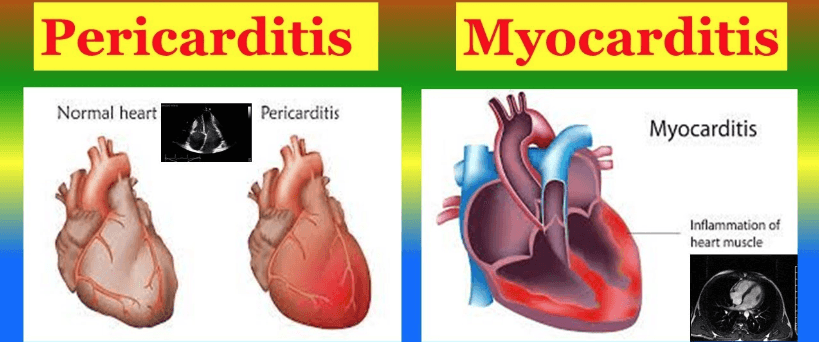
Have you heard of your myocardium? What about your pericardium?
Here’s a hint: they’re layers of your heart!
The myocardium is your heart muscle, and the pericardium is the fluid-filled sac that surrounds your heart. You can thank your myocardium for helping your heart pump blood, and your pericardium for protecting your heart.
Like any other body part, the myocardium and pericardium can become diseased. Inflammation of the myocardium or pericardium is known as myocarditis and pericarditis. Both are serious, but with a little knowledge, you can be prepared to notice the signs and receive treatment that can help you or a loved one stay healthy.
Here are five things you should know about myocarditis and pericarditis.
1. Who’s at Risk?
Although anyone can develop these disorders, certain factors place some people at increased risk.
· The Myocarditis Foundation reports that men are twice as likely as women to develop the condition.
· Young adolescents to adults in their 60s are most likely to develop it.
Risk factors for pericarditis include:
· People with autoimmune disorders
· Bacterial infections
· Chest trauma
· Certain medications
The U.S. Centers for Disease Control and Prevention (CDC) reports that myocarditis and pericarditis have been observed as a rare, but possible, effect of the mRNA COVID-19 vaccine.
Speak with your healthcare provider if you’re concerned that you’re at risk for myocarditis or pericarditis.
2. What are some warning signs?
Spotting myocarditis and pericarditis early is key.
Common symptoms are a sharp pain or a tightness in the chest. Pain is most common during periods of rest or activity; pericarditis can cause chest pain to worsen if you’re lying down.
Both disorders often include:
· Shortness of breath
· Fatigue
· Dizziness
· Fever
· Heart palpitations
While many factors can lead to myocarditis and pericarditis, viral infection is a common cause. Be alert if you or someone you know is ill.
3. How is the heart affected?
If left untreated, myocarditis and pericarditis can have serious consequences. Both conditions impair the heart's ability to pump blood.
With pericarditis, the inflamed outer lining of the heart can compress the heart, causing it to not fully expand as it beats.
In severe cases, myocarditis and pericarditis can lead to more serious disorders, such as cardiomyopathy (enlargement of the heart) or cardiac tamponade (fluid filling the heart sac, thus compressing the heart). Both can also cause abnormal heart rhythms, known as arrhythmias.
4. What’s the connection between myocarditis, pericarditis, and cardiac arrest?
Myocarditis and pericarditis can, in severe cases, cause sudden cardiac arrest, an often fatal health emergency that happens when the heart stops beating due to a malfunction in the heart’s electrical system. Blood is no longer pumped through the body, starving the brain and other vital organs or oxygen and nutrients. Without quick medical intervention, death within a few minutes is virtually certain.
5. How are they diagnosed and treated?
While myocarditis and pericarditis are serious conditions, early intervention and proper treatment can increase your chances of living a healthy, productive life.
Here are some key tips:
· Receive regular medical check-ups and report any concerns to your healthcare provider.
· Tests commonly performed to diagnose myocarditis and pericarditis include chest X-rays, blood tests, and MRIs of the heart.
· Certain medications can treat underlying disorders that cause myocarditis and pericarditis, including autoimmune diseases or viral infections.
· For more severe symptoms, implantable medical devices or surgery may be the preferred treatment option. The Mayo Clinic offers great information on diagnosing and treating myocarditis and pericarditis.
While having myocarditis and pericarditis be physically and emotionally challenging, many people with either condition live healthy, productive lives. The best practice is to catch the disorders early, stay informed, and get the right treatment.
At Starting Hearts, we can provide you with specific training that can make a life-saving difference.
Contact us for more information: info@startinghearts.org.
Cassidy Layne is a pre-nursing student, EMT-trainee, and healthcare writer based in Texas.
